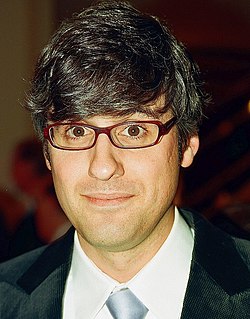A Quote by Susan Elizabeth Phillips
Ironic, isn't it, what religion does to people?" "I guess it's more ironic what people do to religion.
Related Quotes
Irony is the disparity between what you expect will happen, and what does happen. So raining on your wedding day isn't ironic, it's just crappy. It would have been ironic if she had lived in a place like Seattle, and traveled to the desert of Mexico for a wedding and it ended up raining there, but not in Seattle. Alanis always gets the last laugh though. We all sit here, saying her song isn't ironic, but in fact, that's pretty ironic that she wrote a song called Ironic that wasn't really ironic. Those Canadians are pretty crafty.
My four sons all knew I was a Jew, but they were allowed to be whatever they wanted to be. The only thing important to me was that they be good people who help other people, because all religion should try to make you a better person and a more caring person. Whenever religion does that for you, it's a good religion.
What our view of the effectiveness of religion in history does at once make evident as to its nature is--first, its necessary distinction; second, its necessary supremacy. These characters though external have been so essential to its fruitfulness, as to justify the statement that without them religion is not religion. A merged religion and a negligible or subordinate religion are no religion.
History does not record anywhere at any time a religion that has any rational basis. Religion is a crutch for people not strong enough to stand up to the unknown without help. But, like dandruff, most people do have a religion and spend time and money on it and seem to derive considerable pleasure from fiddling with it.
For most people, religion is nothing more than a substitute for a malfunctioning brain. If people need religion, ignore them and maybe they will ignore you, and you can go on with your life. It wasn't until I was beginning to do Star Trek that the subject of religion arose. What brought it up was that people were saying that I would have a chaplain on board the Enterprise. I replied, "No, we don't.







































